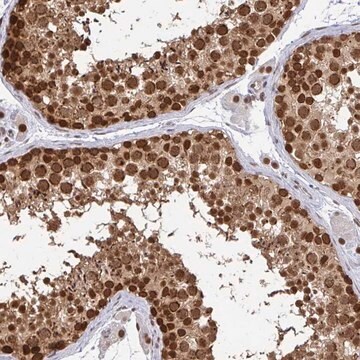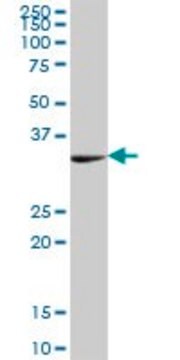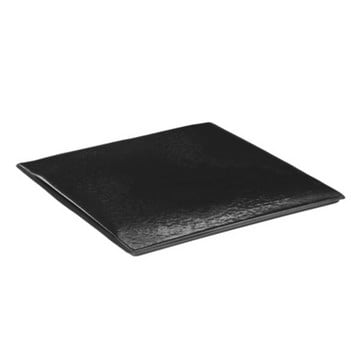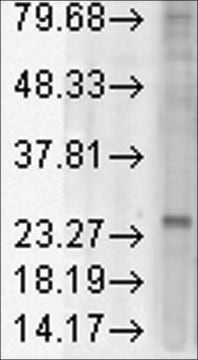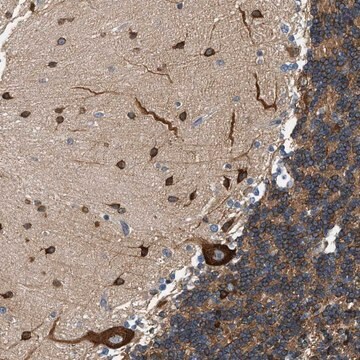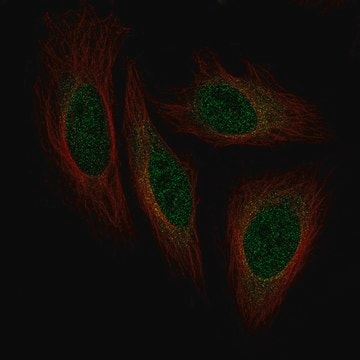SAB1401554
Anti-KDELR2 antibody produced in rabbit
purified immunoglobulin, buffered aqueous solution
Synonym(s):
ELP-1, ERD2.2, FLJ45532
About This Item
Recommended Products
biological source
rabbit
Quality Level
conjugate
unconjugated
antibody form
purified immunoglobulin
antibody product type
primary antibodies
clone
polyclonal
form
buffered aqueous solution
species reactivity
human
technique(s)
western blot: 1 μg/mL
NCBI accession no.
UniProt accession no.
shipped in
dry ice
storage temp.
−20°C
target post-translational modification
unmodified
Gene Information
human ... KDELR2(11014)
General description
Immunogen
Sequence
MNIFRLTGDLSHLAAIVILLLKIWKTRSCAGISGKSQLLFALVFTTRYLDLFTSFISLYNTSMKVIYLACSYATVYLIYLKFKATYDGNHDTFRVEFLVVPVGGLSFLVNHDFSPLEILWTFSIYLESVAILPQLFMISKTGEAETITTHYLFFLGLYRALYLVNWIWRFYFEGFFDLIAVVAGVVQTILYCDFFYLYITKVLKGKKLSLPA
Features and Benefits
Physical form
Disclaimer
Not finding the right product?
Try our Product Selector Tool.
Storage Class Code
10 - Combustible liquids
Flash Point(F)
Not applicable
Flash Point(C)
Not applicable
Choose from one of the most recent versions:
Certificates of Analysis (COA)
Don't see the Right Version?
If you require a particular version, you can look up a specific certificate by the Lot or Batch number.
Already Own This Product?
Find documentation for the products that you have recently purchased in the Document Library.
Our team of scientists has experience in all areas of research including Life Science, Material Science, Chemical Synthesis, Chromatography, Analytical and many others.
Contact Technical Service